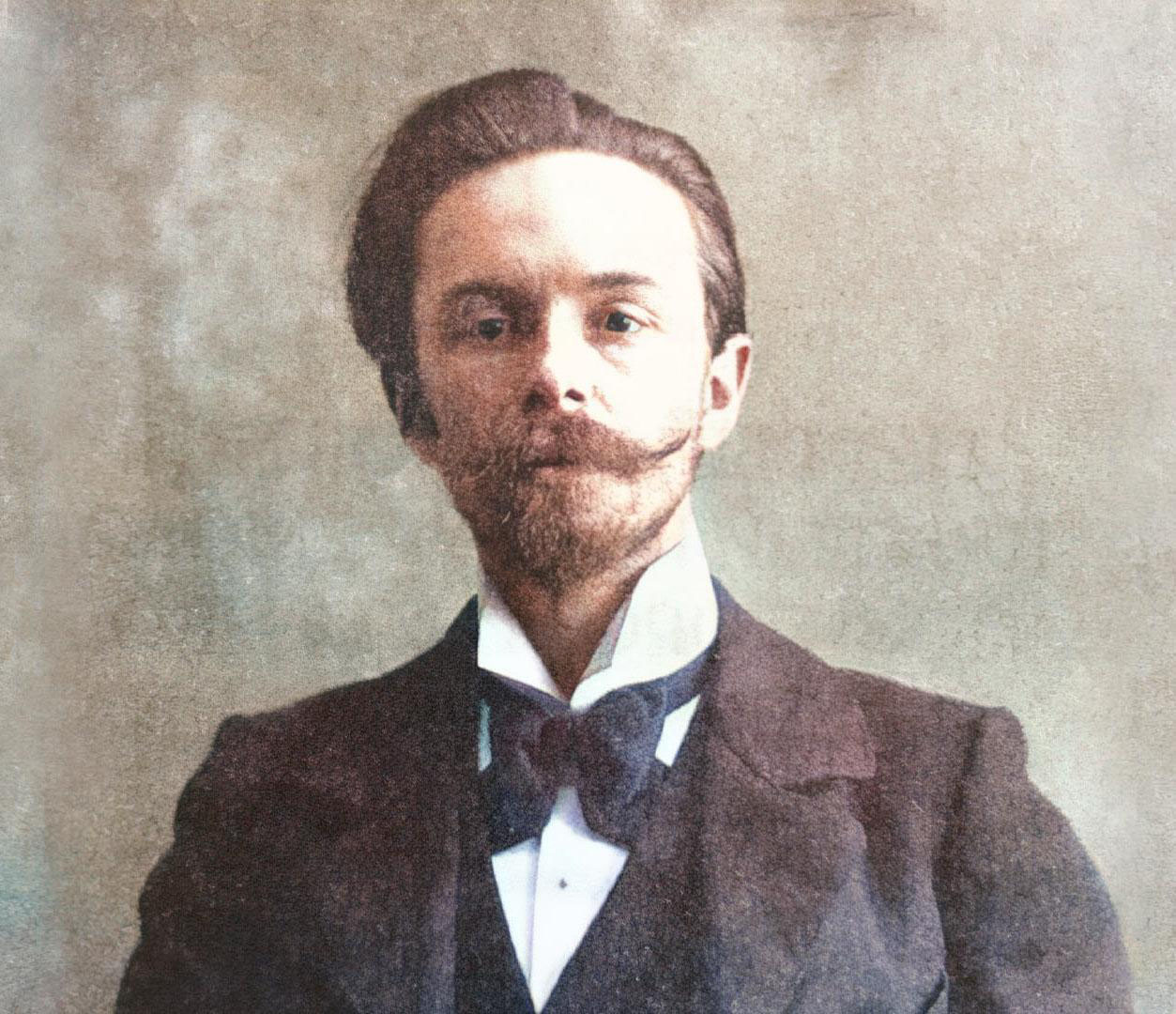Last week The Scriabin Club had a stab at “Connecting Scriabin, Roerich and Lovecraft”….
At the Scriabin Club we also use [Roerich] paintings for the exact reason of philosophical parallels to the spirit of Scriabin.
Roerich I knew, since he was Lovecraft’s favourite contemporary gallery artist. Lovecraft often visited his gallery in New York City, though so far as I know never conversed with the artist.
The name Scriabin (1872-1915) was new to me, so I did a bit of research. Turns out he was a pre-communist mystic Russian composer who was enamoured — like Roerich and Lovecraft — with the idea of high and remote mountains and their esoteric denizens.
Relatively famous in his time, he visited the East Coast of America circa 1907. So the seventeen year old Lovecraft might have read press reports of the visit. Perhaps even read of his ideas about synesthetic art. But would not have heard the music, since the first radio symphony broadcasts were then still 15 years away in the USA.
Turns out Scriabin was a pioneer of the synesthetic aesthetic, including performances with a light-projecting ‘colour piano’. He was also influenced by ideas drawn from theosophy. Both of which somewhat align him with Lovecraft. But he’s now equally well remembered for composing darker and darker dissonant music toward the end of his life, including one darkly un-nerving ‘Black Mass’ piece (1912). This was never made public and attempted to enact a sort of effective “musical occultism”. One can encounter musicological writers comparing his late dark works with Lovecraft’s work, though it sounds to me that he was channelling the sordid earth-bound Crowley-esque sex rituals of the era. Rather than cosmic coldness and non-human outside-ness and aloofness.
After the revolution he appears to have been subject to relentless character-assassination by the Soviet communists, to the extent that in the 1925-1945 period many dupes in the West thought that Scriabin had been both insane and deeply depraved. He did run with a satanist and occultist crowd, and was more than eccentric in his old age, which aided the propaganda. His reputation in the West means it’s doubtful Lovecraft heard his music on the U.S. or British radio in the 1930s (he could access some British broadcasts from Providence).
But by the 1960s Scriabin appears to have been rehabilitated by the Soviet regime, and airbrushed to make him seem a harbinger of revolution. Perhaps even (my guess) a herald of Russian cosmicism. Since his “Poem of Ecstasy” music was broadcast as the space pioneer Yuri Gagarin circled the earth in his space capsule. Yes, at the moment of its highest triumph the Evil Empire broadcast… the music of a composer who many in the West still thought of as a satanist.
I’ve found a direct link with Lovecraft, via his young musical friend Galpin. In 1959 Galpin recorded his memories of Lovecraft, including… “of that time we spent in Cleveland” back in August 1922…
At the time, my [musical] tastes could be summed up in a kind of mystical and sensual Wagnerism — I loved the works of Wagner, ‘Tristan and Isolde’, and I appreciated Scriabin also very much…
So it’s then quite possible that Galpin had acquired some Scriabin scores. Though not gramophone recordings of Scriabin, which don’t appear to have existed at that date. There are some apparently rather un-inspiring early piano-rolls, but the earliest popular Scriabin recording I can find is “Prometheus: the poem of fire” / “Poem of Ecstasy” (1932, HMV). By the 1940s there was a cottage-industry in issuing Scriabin recordings in the U.S., and one could get some 50 or more discs. But that was after Lovecraft’s time.
So “Prometheus: the poem of fire” may indicate the sort of thing that Galpin liked in 1922. Though it’s doubtful Lovecraft heard it, except perhaps as some piano-playing from a paper score one night in Cleveland. Even then he would not have been tapping his toe and clicking his fingers to it. Popular ‘show-tunes’ it is not.
So, to conclude. There are broad comparisons to be made (synesthesia, interest in theosophy and the satanist occult, dark and even demonic music, love of remote mountains) and Lovecraft may even have recalled Galpin enthusing about Scriabin when they met back in 1922. But there is no mention of Scriabin in the index of the latest edition of the Galpin letters.


